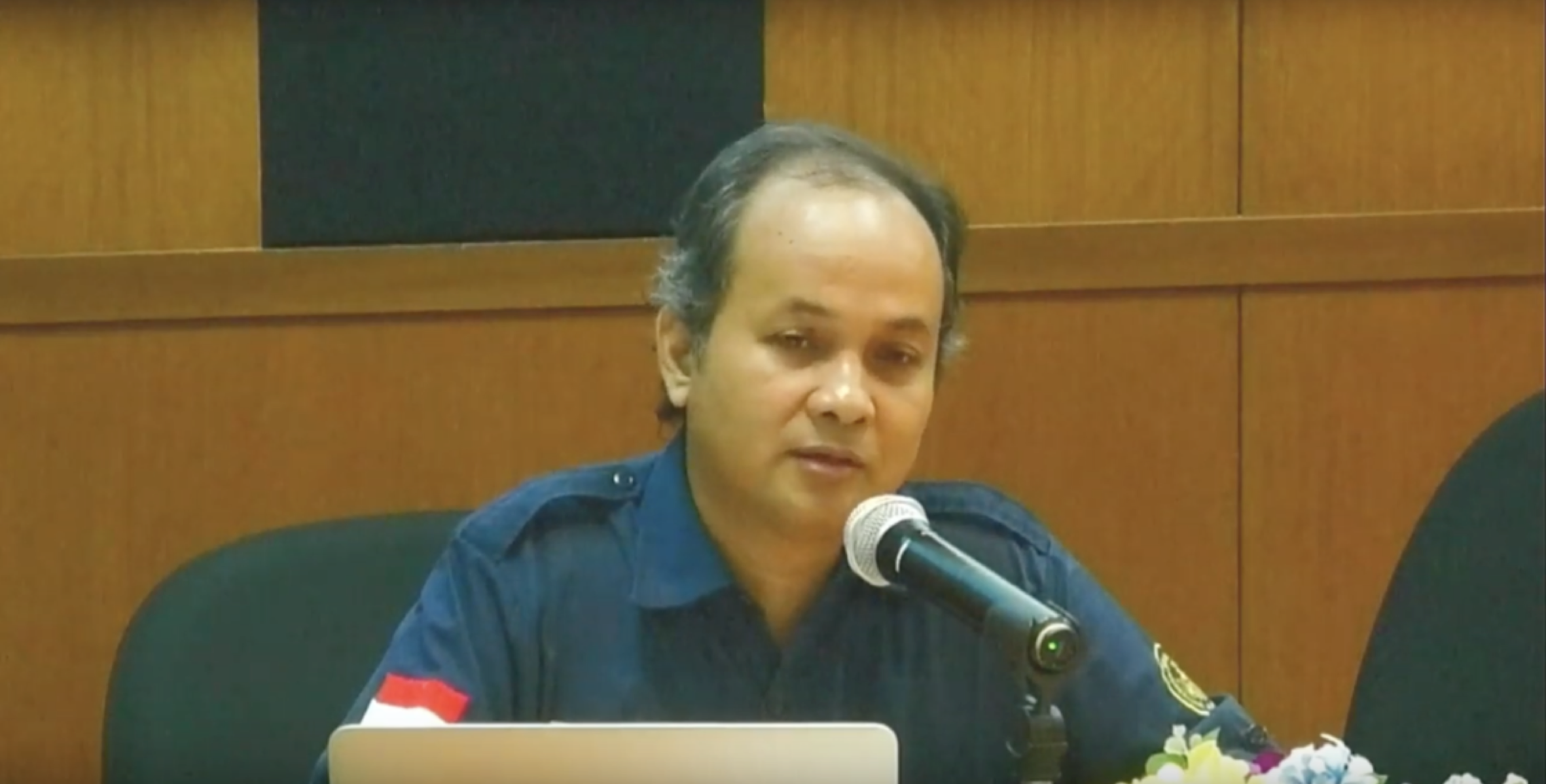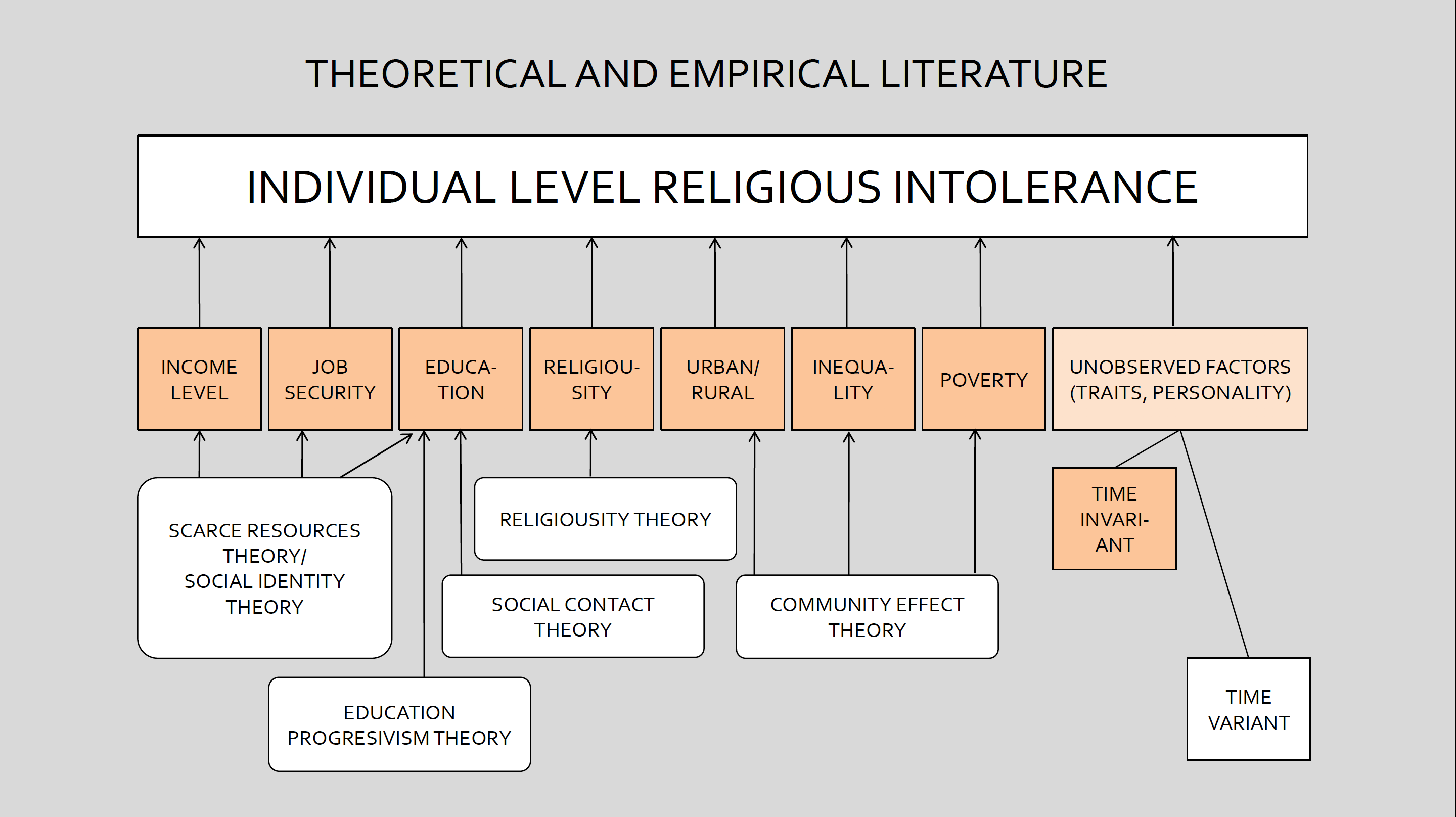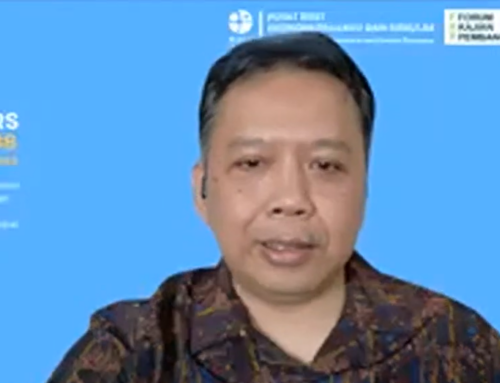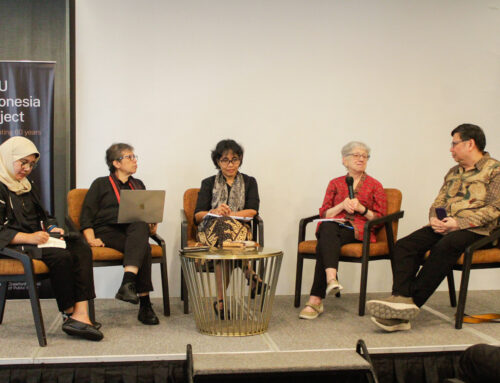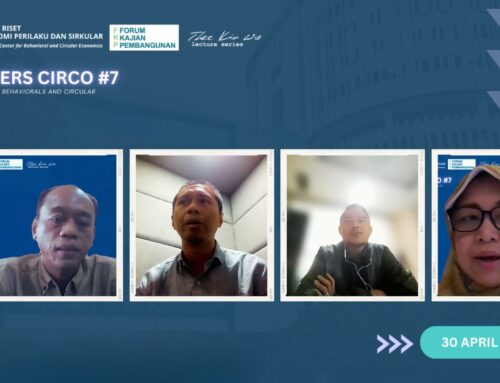Around the globe, religious tensions are on the rise. In Indonesia, the largest Muslim democracy in the world, the same issue is evident with objection towards non-Muslim leaders increasing throughout 2016-2018; refusal of non-Muslim funeral occurring in Yogyakarta and Mojokerto; support for the caliphate system coming from high school students; and more. With cases of religious intolerance spreading across the nation, can religious intolerance be explained by socioeconomic factors? Which socioeconomic factors are relevant in predicting religious intolerance in Indonesia? Hariyadi (Department of Sociology, Universitas Jenderal Soedirman) and Arief Anshory (Department of Economics, Universitas Padjajaran) presented their study on the topic at FKP on Thursday, 18 February 2020 in Jakarta.
This study mapped socioeconomic factors that may contribute to individual-level religious intolerance based on existing theories and examined the variables using 2007 and 2014 panel data. Indonesia Family Life Survey (IFLS) data was used as indicators of religious intolerance since the IFLS included questions on the willingness to accept someone with different faith living in the same village, living in the same neighborhood, renting a house, marrying relatives or children, and building a place of worship in the neighborhood. Meanwhile, Survey Sosial Ekonomi Nasional(SUSENAS) data is used to describe socioeconomic factors, such as job security, education, self-professed religiosity, and community characteristics.
The presenters highlighted several findings from their study. First, out of the predictors examined, self-acclaimed religiosity is the most robust predictor of individual-level religious intolerance. Second, inequality or poverty is the second most robust predictor with a higher rate of which indicating higher intolerance. Third, income level and job security are negatively associated with intolerance except for the interfaith marriage dimension. Lastly, the study noted that the impact of education is mixed, although having tertiary education is associated with higher religious tolerance in some dimensions.
With these findings in mind, the study pointed out some implications for policies. First, the researchers suggest a revisit of current religious teaching to highlight religiosity without being intolerant; acceleration of tertiary education; and promotion of equitable development to reduce inequality and promote harmony.
For the complete presentation and Q&A session, please refer to the video and materials provided.
